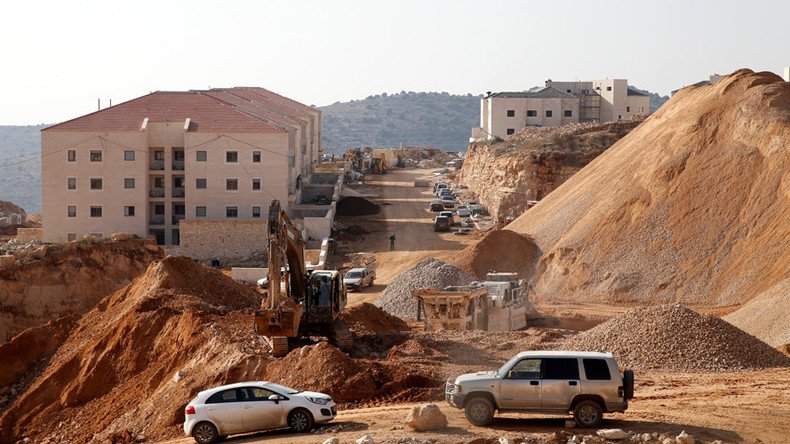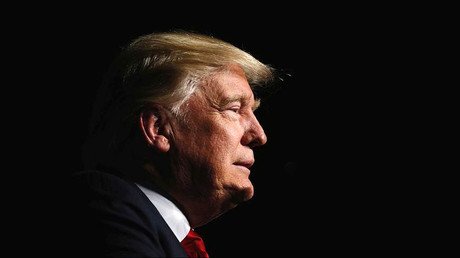UNSC vote on Israeli settlements postponed amid pressure from Tel Aviv

Egypt has decided to postpone a vote on a UN Security Council resolution which calls on Israel to cease illegal settlement expansion on Palestinian land. Cairo allegedly delayed the measure after heavy diplomatic pressure from Tel Aviv.
The United Nations Security Council (UNSC) was set to vote on the resolution on Thursday but Egypt pulled its text at the last minute, postponing the vote until the wrap up of the Arab League ministerial meeting in Cairo.
However, western diplomats told Haaretz that there was a chance that the vote on the resolution would be delayed “indefinitely” following an immense lobbying campaign by Israel.
The US should veto the anti-Israel resolution at the UN Security Council on Thursday.
— Benjamin Netanyahu (@netanyahu) December 22, 2016
After Netanyahu urged the US to veto the vote on the "anti-Israel resolution” on Wednesday night, the Israeli Prime Minister exerted heavy pressure on Egyptian President Abdel Fattah al-Sissi urging him to delay the vote, Haaretz reported.
“President Sisi caved to Israeli pressure,” a diplomatic source told Jerusalem Post. “This is a resolution that the Egyptians spearheaded and introduced, only to shelve it under Israeli pressure.”
READ MORE: Netanyahu urges US to veto ‘anti-Israel’ UNSC resolution on settlements
The initial text of the resolution, drafted by Egypt together with the Palestinian side, called existing Israeli settlements a “flagrant violation” of international law. It demanded that “Israel immediately and completely cease all settlement activities in occupied Palestinian territory, including East Jerusalem.”
“Every member of the Security Council was ready to vote at 3:00pm,” a western diplomat told Reuters on condition of anonymity. “Egypt has delayed the vote following an intense Israeli lobbying campaign against them.”
The resolution being considered at the United Nations Security Council regarding Israel should be vetoed....cont: https://t.co/s8rXKKZNF1
— Donald J. Trump (@realDonaldTrump) December 22, 2016
Frustrated with the postponement of the vote New Zealand, Venezuela, Malaysia and Senegal allegedly issued an ultimatum urging Cairo to clarify their move before midnight Friday.
“In the event that Egypt decides that it cannot proceed to call for vote on 23 December or does not provide a response by the deadline, those delegations reserve the right to table the draft ... and proceed to put it to vote ASAP,” the four council members said in a note to Egypt, seen by Reuters.
The Palestinians on whose behalf Egypt drafted the resolution also signed the note saying “there was a strong sense of disappointment” that the text was not put to a vote on Thursday.
After Israel openly voiced criticism against the draft resolution, the US President-elect, who takes office next month, also expressed opposition to the resolution calling on the current administration to veto it.
“As the United States has long maintained, peace between the Israelis and the Palestinians will only come through direct negotiations between the parties, and not through the imposition of terms by the United Nations,” Donald Trump posted on Facebook. “This puts Israel in a very poor negotiating position and is extremely unfair to all Israelis.”
A senior Israeli official told Reuters that the Israeli government contacted Trump’s transition team at a “high level” and the asked President-elect to apply pressure to shelf the resolution after Tel Aviv learned that the Obama administration intended to allow the measure to pass.
“It was a violation of a core commitment to protect Israel at the UN,” the official said. Another two Western officials told the agency that Obama had intended to abstain from the vote.
An Egyptian diplomat told Reuters that Cairo's move might have been based on the Egyptian leadership’s desire to maintain good relations with the Trump administration.
“We [Arab states] are all looking for a way to ensure constructive relations with this new administration. It's not clear if this [resolution] helps that, or if it might even hinder,” said the diplomat, who spoke on the condition of anonymity.
More than 500,000 Israelis live in settlements in the West Bank and around East Jerusalem, built since the 1967 Israeli occupation of Palestinian territories. The occupied territories have been seeking full independence from Israel for decades, with Palestinians demanding full recognition as a sovereign state from the UN and the international community.













